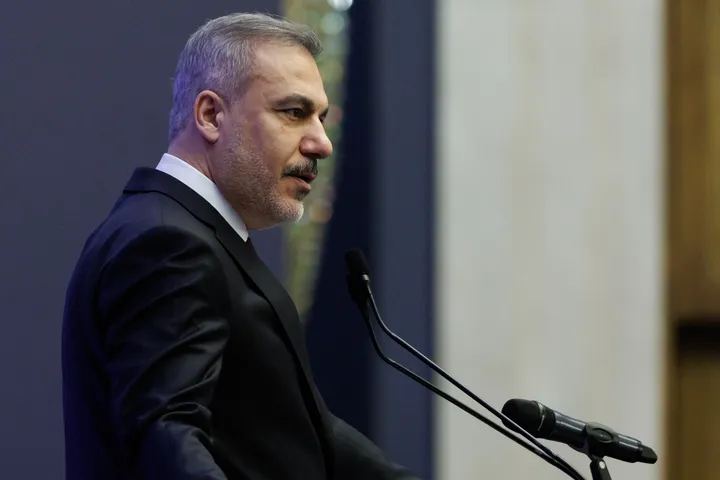After a decade as an astrophysicist and deep space communicator at NASA, Umut Yildiz returned to his homeland, Türkiye, drawn by its potential in space technology.
Yildiz, who has spent 21 years abroad, earned his undergraduate degree in Astronomy and Space Sciences at Ankara University and completed his master's at Groningen University in the Netherlands. He obtained his Ph.D. in Molecular Astrophysics at Leiden University Observatory.
After a decade at NASA, Yildiz moved to a Turkish space technology company.
Significant opportunities in Türkiye for space technologies
Yildiz told Anadolu Agency the reasons for his return and shared the latest developments in Türkiye's space journey.
He said his contract with NASA ended on January 8. "I've been away from my country for many years and missed it a lot. Besides this longing, I chose to return because I see significant opportunities in Türkiye for space technologies."
Emphasising the abundant opportunities in Türkiye's technology sector, he said: "Having spent half of my life in Europe and America, I find Türkiye's emerging status in space and various technologies more attractive. Hence, I decided to return to continue my experiences here."
Yildiz shared that the company he joined focuses on developing space technologies, producing satellites, and providing satellite services. In the past two years, they have built and launched five IoT satellites in collaboration with SpaceX.
He said that the company aims to launch a total of 280 satellites in the future, with 12 set to be operational this year. These satellites can be applied in diverse fields like smart agriculture and logistics in areas lacking internet coverage.
Science centre in eastern Türkiye
Yildiz emphasised that one of his main reasons for returning to Türkiye is to continue providing space education to young people.
He highlighted the importance of increasing the number of science centres across the country and mentioned ongoing efforts to establish one in Hakkari, eastern Türkiye.
He encouraged young people to explore science, stay updated on technology trends, and consider the new job opportunities emerging in the field.
He said that Türkiye is approaching a "significant milestone" in its space journey adding that Alper Gezeravci, part of the Human Spaceflight Mission, will spend 14 days in space, conducting 13 different scientific experiments.
Yildiz emphasised that the experiments conducted by Gezeravci in space, covering health, genetics, and Salt Lake, will make a significant contribution to Türkiye's scientific community.
'In near future, we will see hotels in space'
Yildiz noted that historically, space exploration has been predominantly government-led.
He highlighted the influence of SpaceX in encouraging private companies to enter the space technology sector, creating a global ecosystem.
Yildiz believes Turkish companies are catching on to this trend, and there's still an opportunity for Türkiye to establish a significant presence in the world of space companies adding that there is a long way to go in the field of space technologies in Türkiye.
He emphasised the need for universities and the business sector to allocate more budget to space technologies, noting that the development of space technologies will create new job opportunities for young people.
























